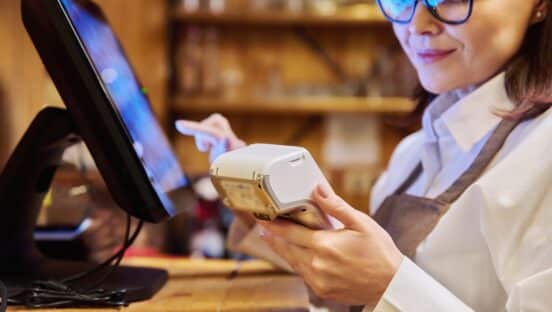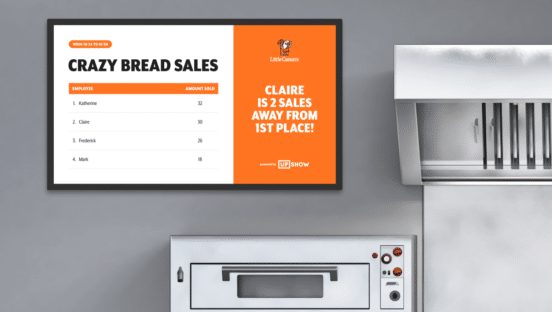The technology revolution arrived swiftly in the restaurant industry. Various innovations have helped brands achieve greater efficiency in countless ways:
-It is largely responsible for the revolution of seamless off-premises sales.
-It is helping offset labor woes by automating certain tasks and processes.
-It has facilitated a move toward contactless ordering and payment transactions.
As helpful and necessary as these developments have been, the industry is now facing growing pains as a result of their implementation. These pains have spawned new challenges that require operators’ attention.
“The pandemic restrictions pushed a lot of businesses into fast changes—where some of the technology that was nice to have is now necessary,” says Jason Graf, vice president of product management at Netsurion. “Many businesses have not thought critically enough about some of the potential risks associated with that growth and development.”
In particular, Graf points to network connectivity, data protection, and security as areas more brands should be concerned about. Connectivity is paramount these days—even a five-minute outage can cost brands hundreds of dollars when you factor in online and in-person orders.
“And network safety and security might fly under the radar, but they are equally important,” Graf says. “With more connected equipment, devices, and apps on the average restaurant’s network, many multi-unit operators are a network breach away from huge headaches and financial damages.”
With those things in mind, here’s a look at a few ways Graf recommends ensuring a restaurant’s network is prepared for the present and future.
It’s All About the POS
The POS has long been a critical aspect of every restaurant operation, and reliance on it is only growing. Integrating digital ordering, delivery orders, and in-house management systems—on top of the ability to transact with customers face-to-face—means that having a reliable and secure network for the POS to connect to is as important as ever.
“This industry weighs any cost increase very heavily,” Graf says. “That’s understandable because margins are very thin, but not having a stable internet connection nowadays is a huge issue. You’re putting customer transactions, revenue, delivery platforms and almost everything you do at risk. It’s worth the investment.”
LTE Failover Maintains Revenue and Guest Satisfaction
One of the ways restaurant brands can ensure a network outage doesn’t cost them in a big way is to use LTE failover—a service provided by managed cybersecurity companies like Netsurion. Here’s how it works: if the internet connection goes down, the POS and other connected devices run on a cellular connection. Customers would never even know there was a service outage.
“It used to be that if the internet connection went down the system would just store credit cards,” Graf says. “But now, the POS itself depends on access to the internet. With third-party delivery and online ordering, you can’t operate in a standalone manner any more without connectivity. For a modern multi-unit operator, you’re going to feel it if a store has repeated service outages. And avoiding lost revenue and unhappy customers outweighs the small cost of LTE Failover.”
Partner With Experts
Technology will continue to evolve and it’s safe to assume that whatever comes next will make network connectivity and security more complex rather than less. It’s why these challenges require immediate action, Graf says.
“As a business partner, we know operators are cost conscious,” Graf says. “Internet connectivity is now business critical and not something that’s just ‘nice to have.’ The services we provide at Netsurion are necessary at this point, especially for multi-unit retail operators. It’s worth paying up a little bit for great connectivity and network security to avoid a few bad days—or weeks—of downtime. This is critical—you can be great at making burgers, but now you have to be great at creating those seamless transactions in a digital world.”
For more on network connectivity and security, visit the Netsurion website.
By Charlie Pogacar













